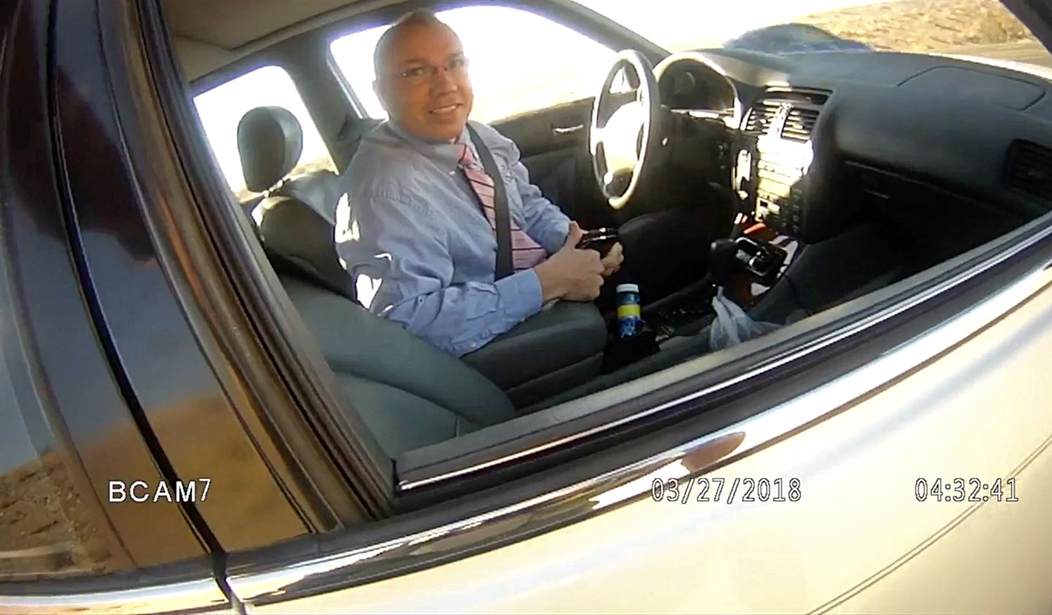The infrastructure bill that recently passed in the Senate came in at just short of 3,000 pages. As we should have all learned by now, that means that there are countless individual items tucked in there, most of which were never read by the vast majority of the Senators who voted on it. Fortunately, we have some diligent journalists out there who tackle the thankless job of reading the entire thing to locate the poison pills that slipped through the cracks. One of those people is Christian Britschgi of Reason, who located a change in Department of Transportation regulations that should be raising some eyebrows. In the future, new vehicles sold in the United States will be required to have drunk driving detection technology installed in them. We’ll get to the significant issues this requirement creates in a moment, but here’s the basic summary:
The new car you buy will have to come equipped with a futuristic breathalyzer, should the bipartisan infrastructure proposal currently working its way through Congress become law.
Included in the 2,700-page bill is a provision directing the U.S. secretary of transportation to issue regulations for new motor vehicles requiring them to come equipped with “advanced drunk and impaired driving prevention technology.”
This new prevention technology would have to “passively detect” whether a driver is impaired and “passively” measure his blood alcohol concentration to see if it’s above the 0.08 percent limit set by federal regulations. If this technology does determine a driver is impaired or over the limit, it will have to be able to stop someone from driving his vehicle.
I would hope that most of us realize that driving under the influence is dangerous and should be curtailed as much as is possible. But with that said, are we at the point where our cars can be “smart” enough to make these sorts of decisions on their own and enforce their artificially intelligent will on their drivers?
That brings us to the first hurdle suggested above. The technology being mandated doesn’t actually exist yet, at least not in any sort of “passive” detection system. There are detectors available that require the driver to blow into a tube to unlock the ignition (required in some states for people convicted of DUI), but that’s hardly a passive system. Also, as Reason notes, they are expensive to install and frequently require recalibration.
Some auto manufacturers have experimented with other types of sensors intended to measure alcohol in the sweat coming out of people’s hands or by “sniffing” the air inside the vehicle. But tests of those systems show that they simply don’t work and can frequently produce false positives or negatives. Also, any system that “sniffs” the air in the entire car could backfire spectacularly. Would an Uber driver who is bringing home drunken riders be locked out of her own vehicle, preventing her from bringing bar patrons home safely?
Moving past the basic logistical roadblocks here, there’s also the ever-present specter of data privacy concerns. If your car is going to start collecting data on if or how often alcohol is detected inside your vehicle, it’s going to be uploading that data somewhere, right? What happens to it then? Will the manufacturer be “helpfully” selling that data where it may wind up being accessible to your family or your employer, even if you never actually wound up driving drunk a single time?
There’s one other concern that this mandate doesn’t seem to cover. Not all DUI charges involve alcohol. In fact, with the legalization of marijuana taking place in so many states, there might well be even more stoned drivers than drunk ones. And that doesn’t begin to address the number of people taking pills. These systems aren’t going to do anything to stop those incidents, being limited strictly to consumers of alcohol.
This really sounds like a case of good intentions leading us into the briar patch. I’m confident that we would all like to see an end to drunk driving and the horrible accidents, injuries, and deaths that all too frequently result from it. But turning our cars into incompetent AI snitches probably isn’t going to do all that much to alleviate the situation and could produce even more problems.








Join the conversation as a VIP Member